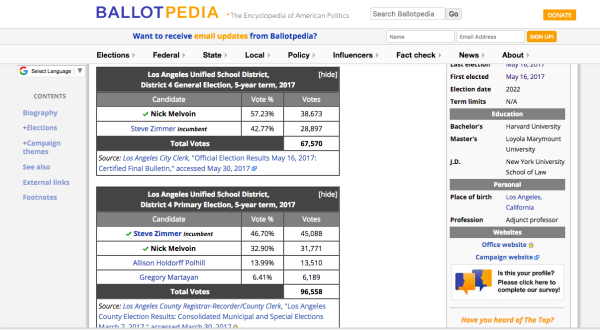Running for office can be arduous, exhausting and frustrating…if you don’t know how to run a local political campaign. And we know that running for office, particularly if it’s your first time, can be overwhelming. But, it doesn’t have to be. Below are important steps you can take to have an advantage over your opponent.
First, let’s talk metrics.
How many voters do you need to win an election? Almost every office has a minimum requirement of votes needed to win an election. That’s one number you would need. You can get that information from your electoral office. This voter file is of extreme importance, it tells you every registered voter and their party affiliation in your district.
The other number you would need is how many votes have been cast for the winner in previous elections so you have an idea of not just the minimum number of votes needed but how many votes it took to win in previous elections. You can find that information out at Ballotpedia.

Now, that you have this number you can create your game plan on how to reach out to your voters and engage with them. Where do you spend your time canvassing, calling and mailing to your voters? It’s not enough to just reach out to family and friends, though that is effective as a beginning campaign strategy. Activating voters in your district is essential to winning an election.
Tracking your potential voters is just as important as registering as a candidate. If you know who is or isn’t going to vote for you then you will know who to spend your time and money on to reach. It is also important to know what voters are either on the fence or don’t know about your candidacy. They become targets for persuasion as you approach Election Day.
Track your voters when they have been contacted. Follow-up is important so you can stay top of mind.
Contact points to track include:
- Call data – When you called, did you leave a message, did you speak with the voter?
- Email – When did you send an email, which email did you send, did it bounce back to you?
- Text – Did you send a text? Did the voter unsubscribe?
- Canvassing – Did you visit their home? Were you able to talk with them? What information did you leave behind?
- Follow-up – What is the next point of contact with your voter and what kind – voice, email, text, visit?
Starting Your Local Political Campaign The Right Way
Unless the candidate is extremely wealthy and well-known, local political candidates usually don’t have a lot of resources to start. On top of that, many candidates often lack name identification with voters. This can be a big problem if they are running against a popular opponent or an entrenched incumbent.
There are two things small campaigns should first focus on: Raising initial contributions and putting together a strong organization.
Initial donations often comes from the candidate’s friends and family. You can start with your family members, colleagues, friends and other supporters you know. Let your prospects know why you are running, why you think you can win – and how their support can make a difference.
Use this money to hold a a kick-off campaign fundraising event. Now you can broaden your reach to raise more money and to start spreading the word about your campaign. Try to make your event interesting and at a location that is affordable. You don’t want to spend the bulk of your donations just to hold more fundraisers!
Organize the structure of your campaign. At the very least, you will need a campaign manager, treasurer and volunteers.
Most candidates write out a political campaign plan before they run for office. Your plan will lay out your election strategies, and will depend several factors. These include the size of the electorate, the major local issues, and the timeline of the election season. To run a successful political campaign, you will need to tweak your plan throughout the election season.
[bctt tweet=”Most candidates write out their strategy before they start a run for elected office. And that strategy may change over the course of the election.” username=”onlinecandidate”]
Related Article: Running for Office – Frequently Asked Questions
Create Your Political Message
Now that you have a plan of action and your voter file, what is the message you are going to deliver?
You have to tell your own story…WHY are you running, what value will people voting for you get when you’re elected. Your message has to be clear and concise so it is easy for your constituents to understand quickly.
There are three primary points to hammer home to voters. Tell them about yourself, about your life and why you believe what you do. Voters don’t care about your resume. They want to relate to you on their own level – story points, family, hobbies, military service, etc.
Remember, it’s not about you and your achievements, it’s about what you can do for the voter. They want to know what is in it for them.
Spending Time and Money
You have your message and you know who your voters are and now it’s time to engage them. When you talk with your constituents, remember to ask them for their vote and see get their agreement. This way you will be able to record if they are or aren’t going to vote for you, and you’ll know your follow-up path.
Advertising Your Campaign Online
It goes without saying that having a presence on the web is instrumental. Most local campaigns start with a political website and a presence on social media. We are in the digital age now and need to be where are constituents are – and they are, for the most part, on social media.
![]()
Facebook, Twitter, Instagram and Linkedin are all relevant social sites. If you have to choose which sites to be on, choose Facebook and Instagram. Run ads to targeted audiences in your district and have a call to action to donate, learn more or click Like to show their support of your campaign.
Post about relevant issues you are addressing, your message and your story. Remember to drive home the value your constituents will receive if they vote for you. Make your message easy and simple to understand.
In order for your message to reach people online, you will need to budget for online advertising. Plan to devote a chunk of your budget toward online ads. This includes advertising on Facebook, where you can target people based on their demographics, interests and location. Google may be more restrictive, but you can still run pay per click and display ads to reach your desired audience. IP target advertising can allow you to reach voters at a household level. There are even less obvious methods like running banner ads on your local newspaper website.
With three weeks before the election you have plenty of time to make an impact on your voters. Put together a ‘get out the vote’ (GOTV) strategy and the steps you need to complete it. Canvass, call, email and text coupled with an informative website and active social campaigns will help reach as many voters as you can.
Becky Creighton is Director of Partnerships for Handraiser, a political campaign software that helps candidates track voters, provide communication channels between the candidate and voter and manages volunteers and canvassing efforts.
« When Is The Best Time To Order Campaign Signage?Political WordPress Templates by Online Candidate »







